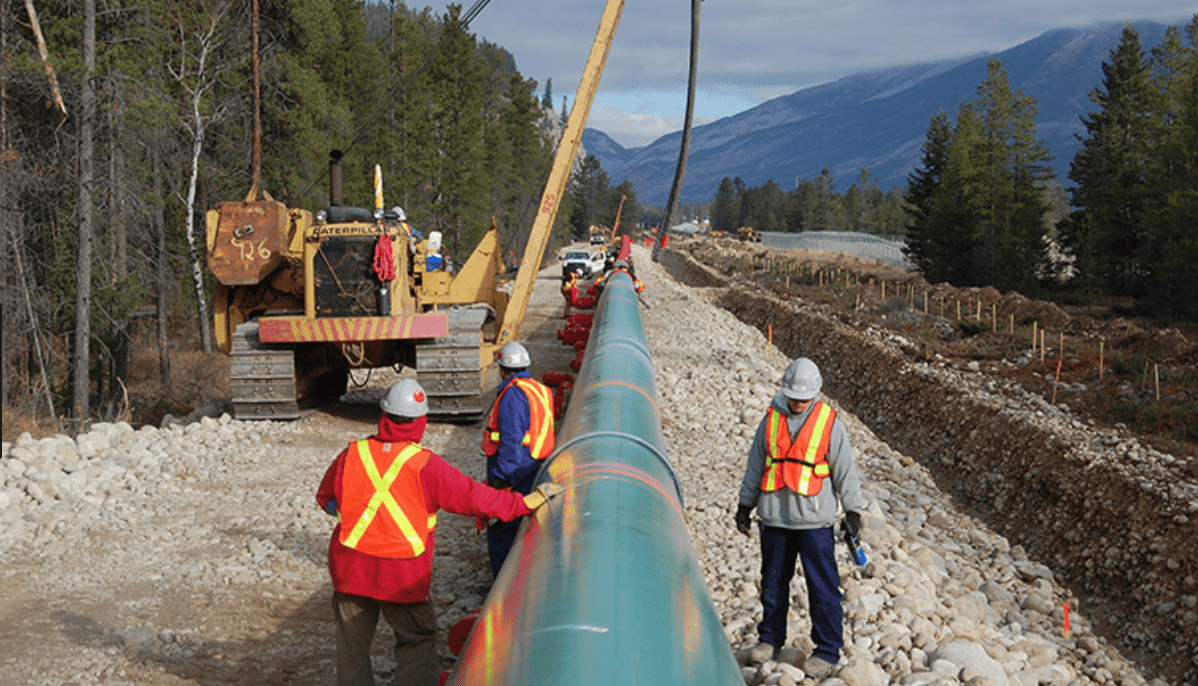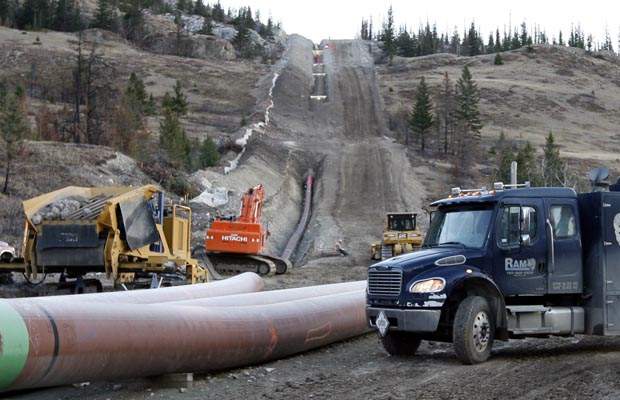The current Trans Mountain pipeline dispute simmering between British Columbia and Alberta brings into sharp focus certain complex economic and constitutional issues that warrant careful analysis.
Unfortunately, if you're hoping to find such a careful analysis in this column you'll be sorely disappointed, because when it comes to complex constitutional and economic issues, I don't have a clue.
I do, however, know a thing or two about politics.
And what's interesting about this pipeline battle from a political standpoint is how all the supposedly important constitutional and economic issues are actually taking a backseat to something much more primitive tribalism.
Tribalism, by the way, is what I call the basic emotional need that's buried deep in all of our subconscious minds, which compels us to align ourselves with others who are in some way similar to us.
Basically, in other words, thanks to the way evolution has hardwired our brains, we all like to identify with a "tribe."
And there are tribes galore for us to side with, from ethnic tribes to religious tribes to national tribes to political party tribes.
What's more, this sense of tribalism also makes us if only on a subconscious level wary of other tribes.
If I'm a Yankees fan, I'm predisposed to hate Red Sox fans.
Anyway, since time immemorial, politicians have exploited humanity's inherent tribal nature by adopting an "Us vs. Them" communications strategy.
Here's how it works: politicians will say something along the lines of "Vote for me, because I will protect "Us", your tribe from "Them", their tribe.
Simple, but effective.
At any rate, my point is political tribalism is rife right now in the Trans Mountain pipeline dispute.
Certainly, for instance, British Columbia Premier John Horgan, the politician leading the fight to stop the pipeline, is enthusiastically playing the tribal card
First off and most obviously, he's galvanizing the "green" tribe by emphasizing (and perhaps exaggerating) the pipeline's potential ecological dangers.
But more interestingly, Horgan is also playing up the pipeline's "foreignness."
Indeed, it seems Horgan can't ever talk about the pipeline without also pointing out that the company constructing it, Kinder Morgan, is based in Texas.
His message basically is, "This pipeline will make 'Them' (Texans) rich, without helping 'Us', (British Columbians.)
In fact, after Kinder Morgan kicked up a hornet's nest when it established a deadline to clear up the pipeline battle, Horgan declared, "All of a sudden when the shareholders in Texas issue a press release there's a constitutional crisis."
That's skillful messaging because it plays on the most basic of all tribal emotions our fear of foreigners.
And by painting the pipeline as an American project, Horgan also cleverly offsets the tribal appeals emanating from the pro-pipeline forces, who are prone to say stuff like, "This pipeline is needed to make 'Us' (Canadians) better off, so we shouldn't give in to 'Them' (A small number of American-funded green fanatics.)
Plus, in addition to stoking anti-American and green tribal sentiment, Horgan is playing up "provincial" tribalism.
We see this when he bluntly says things in the BC legislature like, "What we're talking about here is the province of B.C. going to court to assert our jurisdiction and protect the interests of British Columbians".
You might say, Horgan is employing the emotionally compelling tribal tactic of putting "Us" first.
And make no mistake, if he can manage to get British Columbians thinking in such "Us vs Them" tribal terms, it will strengthen his political position in the anti-pipeline battle immeasurably.
After all, if British Columbians come to see the Trans Mountain pipeline as an assault on their tribe, it will make them resistant to all the economic and constitutional arguments that are being trotted out to defend the pipeline.
History has shown time and time again that people will put the well-being and integrity of their tribe ahead of intellectual abstractions, such as economic interests or constitutional mumbo jumbo.
Consider how the Brexit side (which promoted mainly emotional tribal arguments to leave the EU) won the UK referendum despite all the economic warnings of doom and gloom.
Such is the power of tribalism.
Hence, from a tactical point of view, Horgan's appeals make perfect sense.
But his strategy also comes with a significant risk, since once tribal passions are unleased in a political arena, things can escalate quickly and unpredictably.
At the end of the day, the only thing that matters for people whipped up emotionally in a tribal political war, is that "Us" prevails over "Them."
Photo Credit: Victoria Buzz











